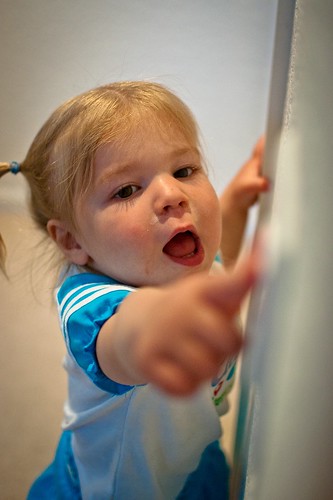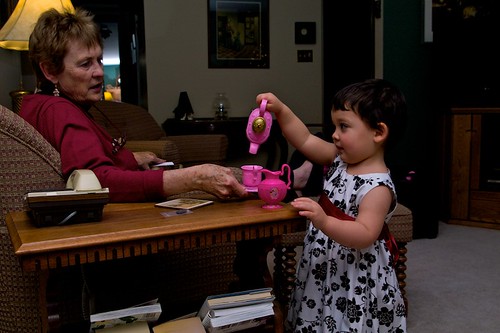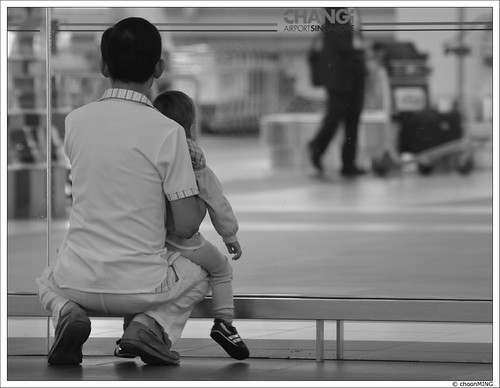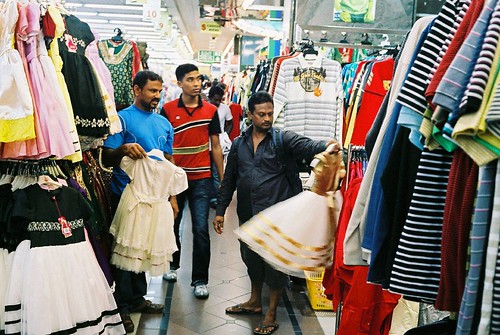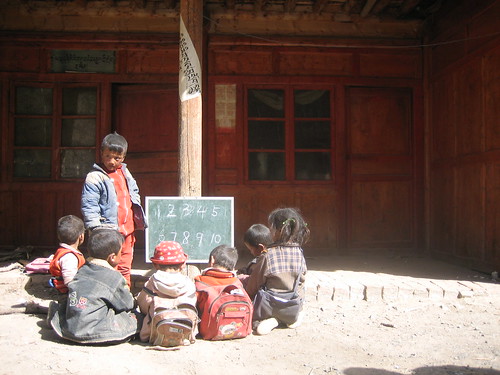Mass of Christian Burial for Marie Tan
Choosing The Pattern of Christ
Choosing The Pattern of Christ
Readings: Wisdom 3:1-9; Psalm 23; Romans 6:3-9; Luke 23:44-46, 50, 52-53, 24:1-6
Picture: cc kudumomo
Sisters and brothers, when you go on a trip to a foreign country, you usually don’t get to choose the pilot who will fly your plane, or drive your bus. And you accept this. When you travel, you accept that this is just one of those things over which you have no control. But this doesn’t mean that you have no choice at all. You may not be able to choose the pilot, but you can choose the airline. You can, for example, choose the company that has established a reputation for high safety standards and good service. So that even though you may not be able to choose the pilot, you can still choose the way in which you wish to travel.
This is true not just of a trip from one country to another, but also of our journey through life and death as well. Although we may try not to think too much about it, we all know that, if we let nature take its course, we cannot really choose the cause of our death. If we did, we would all probably choose to die peacefully and painlessly in our sleep. But, even if this is true. Even if we cannot choose the cause of our death. In a very real way, we can still choose how we wish to live, and how we wish to die.
Isn’t this what we see in the experience of our dear Auntie Marie? We all know the disease that led to her death. We all know that she had no choice in the matter. She did not choose to have cancer. Nobody in her right mind would wish that. And yet, those of us who had the opportunity of spending time with her after her diagnosis, also know that Auntie Marie did make a choice about how she would spend the time that was left to her. She did choose how she would live and how she would die.
We know that she chose to be baptised into the Christian faith. She chose to be a disciple of the Lord Jesus. And we know what this means. To be baptised is not just to have water poured over our heads. The water symbolises both a dying and a rising. A dying to ourselves. So that we can rise in Christ. The second reading we heard just now tells us what this means. To be baptised is to imitate the pattern given to us by Jesus. The pattern of his death, and the pattern of his life.
This pattern has several characteristics. The first is surrender. Surrender to God. As we heard in the gospel just now, the final thing that Jesus said before he breathed his last was Father, into your hands I commit my spirit.
I did not spend too much time with Auntie Marie. But I did have the opportunity to chat with her on the Thursday before she died. The full content of our conversation should, of course, be kept in confidence. But I do think that she would want me to share at least this much with you. She told me that she had been praying the Rosary. And she was moved to tears as she spoke about her prayer. At first, I thought she was sad or afraid. But she wasn’t. She showed me a pamphlet written in Chinese. It contained a description of all the mysteries of the Rosary. And she told me that she was much moved when she thought of all that Jesus had done for us, and for her. So much so that she was not afraid die. She was willing to imitate the Lord Jesus. She was willing to surrender her life to the Lord.
And, because she was willing to do this, because she surrendered so wholeheartedly to God, we believe that she rests in the peace of the Lord. For this peace is the second characteristic of the pattern that Jesus left for us. This is also what we heard in the first reading. The souls of the virtuous are in the hands of God, no torment shall ever touch them. Even though Auntie Marie did suffer physical pain, even though it may appear to many that she is dead and gone, as disciples of Christ, we believe that she is now at peace in the embrace of the Lord. We believe that God has put her to the test and proved her worthy to be with him. And we believe that, when the time comes, we will all be reunited in the Kingdom of God forever.
Apart from surrender and peace, there is a third characteristic to the pattern that Jesus left us. This has to do with the effects of his dying and rising. In John’s gospel (12:32), Jesus says: when I am lifted up, I will draw all people to myself. And we see the truth of this in the passage that we heard just now. After Jesus dies, people begin to gather. Joseph of Arimathea–who was until then only a secret disciple, because he was afraid of the religious authorities–now receives the courage to make his discipleship public. He goes and asks for Jesus’ body. We hear also of how the women gather at the tomb. When Jesus dies, he gathers people together. And they become one Body in Christ.
Isn’t this also what Auntie Marie’s passing is doing for us. When someone dies in Christ, people are gathered in the Lord. And this was something close to Auntie Marie’s heart. In my conversation with her, she told me that she had only one wish. She wished that all the members of her family would continue to care for one another. That they would always remain united. When someone dies in the pattern of Jesus, people are gathered together in Christ.
But that’s not all. In our gospel reading, although people are brought together, they do not remain in one place. Having been gathered by the experience of the Lord’s death, they then receive the news that He has risen from the dead. And, in this new experience, they are sent out to share the Good News with others. When someone dies according to the pattern of Christ, people are gathered in unity. And when someone rises in the pattern of Christ, people are scattered in service.
If all this is indeed true, sisters and brothers, then it is not just Auntie Marie who made a choice. We have a choice to make as well. We have a choice as to whether or not we wish to see Auntie Marie’s passing according to the pattern of Christ. We have a choice whether or not, even as we continue to grieve the loss of a loved one, we wish to surrender ourselves into the comforting arms of the Lord. We have a choice whether or not to allow ourselves to be gathered into unity, and to be scattered in service.
We have a choice.
Sisters and brothers, how will you choose today?

